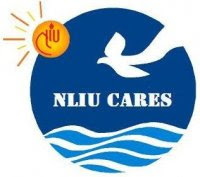The United Nations has adopted a resolution, which recognises access to clean water and sanitation as a human right.
The U.N. General Assembly resolution, sponsored by Bolivia, received 122 votes in favour and 41 countries abstained. The resolution states that “the right to safe and clean drinking water and sanitation as a human right that is essential for the full enjoyment of the right to life.”
There are currently 884 million people without access to safe drinking water and more than 2.6 billion do not have access to basic sanitation. Around 1.5 million children die each year of water and sanitation related diseases.
The resolution also called on member states and international organisations to offer funding, to help poorer countries scale up their efforts to provide clean, accessible and affordable drinking water and sanitation for everyone.
Most developing countries voted for the resolution but several developed countries abstained on the grounds that the resolution did not clearly spell out the nature of the obligations.
“This resolution describes a right to water and sanitation in a way that is not reflective of existing international law; as there is no “right to water and sanitation in an international legal sense as described by this resolution,” said John F. Sammis, a diplomat speaking on behalf of the U.S., which abstained.
British delegate Nicola Freedman also said that didn’t exist “at present sufficient legal basis under international law to either declare or recognise water or sanitation as free-standing human rights.”
The Millennium Development Goal of the U.N. is to halve by 2015 the proportion of people who cannot reach or afford safe drinking water and halving the number who do not have basic sanitation.
“We can survive quite a long time without food, but only several days without water,” said Pablo Solon, the Bolivian ambassador. “More people die from the consequences of unclean water than the total of all deaths from AIDS, malaria and measles.”
Today’s resolution also invited Catarina de Albuquerque, the U.N. Independent Expert on the issue of human rights obligations related to access to safe drinking water and sanitation, to report annually to the General Assembly.
Countries like China, Russia, Germany, France, Spain and Brazil supported the resolution, which does not have any legal force. However, a General Assembly resolution carries moral and symbolic value.
Courtesy: The Hindu; this news item appeared in The Hindu on July 29, 2010
Sent and Posted by: Amitej Kumar Nagar, First Year, NLIU
